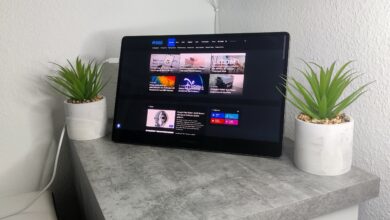
Cookies, and cookie banners in particular, have been a thorn in the side of consumer and data protection activists for many years. A potentially groundbreaking ruling has now been issued against the controversial collection of data on the Internet. In this, the well-known Burda publishing house was defeated by a consumer organization.
A long road to the cookie ban
On the part of the Federation of German Consumer Organizations (VZBV), the champagne corks should be popping these days. Less than a month ago, the Munich I Regional Court ruled that the association was right in its accusation that BurdaForward was violating the Telecommunications Telemedia Data Protection Act (TTDSG). The focus was on the cookie banners on the Focus Online website. The accusation, which the regional court has now ruled on, is not really new.
However, the procedure is a novelty in the area of consumer centers. It is actually common practice for the consumer centers of the individual countries to deal with consumer protection issues. This also includes data processing by German companies. Since this never really bore fruit, however, the federal association now appeared in court. And apparently with great success.
- Have you read this? UK wants to ban cookie banners from the net
Munich Regional Court was in a hurry
In the verdict, the Munich Regional Court I also plays a decisive role. Thus, the question was actually pending until the end, whether the Federation of German Consumer Organizations as such is entitled to sue at all when it comes to violations of the General Data Protection Regulation (GDPR). A decision by the European Court of Justice (ECJ) is still pending in this regard. However, since the latter already confirmed in the spring at the request of the Federal Court of Justice (BGH) based in Karlsruhe that a lawsuit is possible, the second attempt is also likely to be positive. The regional court in the Bavarian capital is obviously taking too long. After all, it made its ruling before it was even clear whether the ECJ would accept the right to sue as a given in and of itself.
The Munich court decision now speaks a clear language in any case. The ruling, with the file number 33 O14776/19, states that Burda Verlag is no longer allowed to make “cross-domain recordings of user behavior for analysis and marketing purposes”. This ban is then to be lifted again if Burda makes changes to its cookie collection. In particular, the method of consent conflicts with current law. However, since the ruling is not yet legally binding, we can probably assume that Burda-Verlag will still exhaust its legal remedies until a final decision is made on the issue.
- Also interesting: Google Chrome: Alternative to third-party cookies postponed to 2024
Burda invokes user learning on cookie
It is almost cheeky how the cookie collection on Focus Online proceeds. For example, visitors to the website have to endure a total of 141 pages of cookie banners. In the court’s view, this prevents “informed and voluntary consent.” Burda, for its part, claims to have a “legitimate interest” in processing user data. The publisher is unable to understand the criticism of the Focus Online website in particular, as it believes that the procedure is typical of the market. From his point of view, one would have to admit that users have understood the principle of cookie banners by now. He refers to the “two-stage nature” of cookie queries. Thus, on the first pop-up, a window opens that either allows consent to cookie collection or allows detailed settings.
Only when you click on Settings do you get the option to allow only the collection of so-called necessary cookies on the second level, so to speak. The fact that it is not possible to reject other cookies at the first stage is due to the fact that the law simply does not stipulate this. So far, so well known. However, it is problematic that clicking on consent ensures that one’s own data is not infrequently passed on to more than a hundred “data collectors”. Burda uses IAB Europe technology for its banners. This was only punished by the data protection authority in Belgium at the beginning of the year. However, a court decision is still pending in this case as well.
- You might also be interested in this: Cookie banners could soon be declared illegal
A breakthrough for data protectionists
The Munich Regional Court was now apparently faster and has set out its view of the matter. Thus, according to the opinion of the judges, it is very sensitive data that is transmitted by way of the typical TC string for IAB Europe. This even goes so far that users could be identified by third parties who process the files. Finally, the IP address is also transmitted. Furthermore, the court doubts that users would even have voluntarily consented to the data processing and collection. It simply lacked voluntariness because it takes too long to object to the cookies. Here, too many users take the path of least resistance, often neglecting the protection of their personal data just to be able to surf the Internet faster.
Rosemarie Rodden, a consultant at the Federation of German Consumer Organizations, was extremely happy when asked by colleagues at heise online. In particular the fact that it lacks simply at the voluntariness of the users sees it by the judgement of the court as confirmed. But according to Rodden, the Munich judges took another important step. In particular, the finding that a cookie collection on the scale of Focus Online is not technically necessary for a news site is an important decision. Now, consumer advocates are looking positively toward the further lawsuits currently underway against Burda Verlag.
Burda announces legal remedies
Of course, Burda has a completely different opinion. At the publishing house, one sees cookie management as absolutely customary in the market. The operator of Focus Online and many other sites explained this to heise online. In doing so, they also referred to the scope of the ruling. From Burda’s point of view, the Munich I Regional Court had ruled on legal issues on which there was not even a supreme court ruling. It is therefore all the less surprising that the publisher has lodged an appeal. So it remains exciting how the controversial cookie banners will be handled in the future.




No replies yet
Neue Antworten laden...
Gehört zum Inventar
Beteilige dich an der Diskussion in der Basic Tutorials Community →